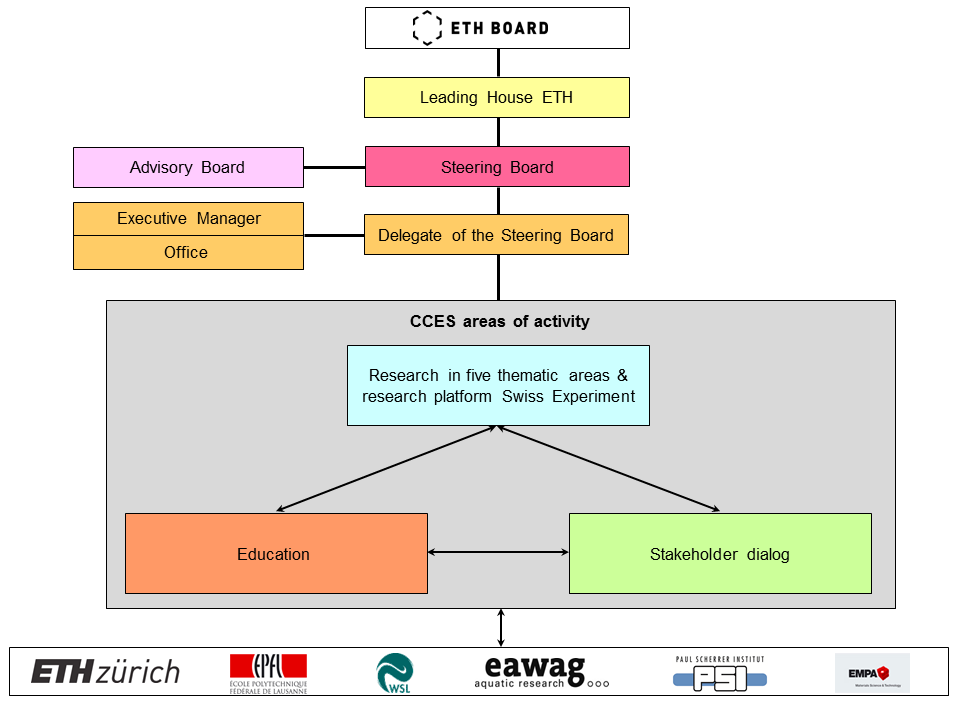About us
CCES establishes a new thinking and priority setting based on sound scientific and engineering knowledge to integrate the principles of sustainable development into country policies and programs within the next ten years. CCES provides the scientific and structural basis for this integration in Switzerland and as a global player.
It is the mission of CCES:
- to identify the relevant questions before they become problems and to provide appropriate answers to foster the sustainable development of our future society while minimizing the impact on the environment;
- to achieve excellence in education and research and focus research and applications on themes crucial for our future, ranging from climate and environmental changes to food safety, sustainable land use, natural resources and the management of natural risks;
- to facilitate the integration of the principles of sustainable development into country policies and programs.
Organization

Steering Board
The Steering Board is the strategic forum responsible for the overall strategy and planning, the allocation of resources, the scientific and institutional profile of CCES. It is composed of the Presidents of the Leading House ETH Zurich and of EPF Lausanne (as a guest), an additional representative of ETH Zurich and EPF Lausanne each, the directors of WSL and EAWAG.
Advisory Board
The Advisory Board is involved in the review of overall CCES projects and activities. It advises the Steering Board on the strategic priorities, fields of activities, and overall objectives to be pursued. Furthermore, the Advisory Board accomplishes the on-site assessments of the CCES units. It is composed of members from leading international research institutions with recognized expertise in one or more of the CCES’ focal topics, and members from outside the institutions from politics, international science and industry.
Delegate of the Steering Board
The Delegate of the Steering Board, René Schwarzenbach, is responsible on the operational level for the planning, design and implementation of CCES. In particular, he is responsible
- that ERUs and IEs are developed and executed in a way warranting the optimal achievement of the strategic goals set by the SB;
- for the co-ordination of ERU and IE activities in a way that allocates available resources optimally, prevents duplications, and makes use of synergies;
- for information exchange and knowledge integration among ERUs (or their subunits) and IEs;
- for the evaluation of the quality and management of ERUs and IEs;
- for the involvement of external partners with a complementary research portfolio of outstanding quality;
- for the provision of information on the activities and achievements of ERUs and IEs to the stakeholders;
- for building up the Corporate Image and the public visibility of CCES.
Executive Manager
The Executive Manager, Nikolaus Gotsch, is responsible for the organizational, financial and administrative functioning of CCES as a whole. He integrates, interlinks, and co-ordinates the various bodies of CCES and their activities.
